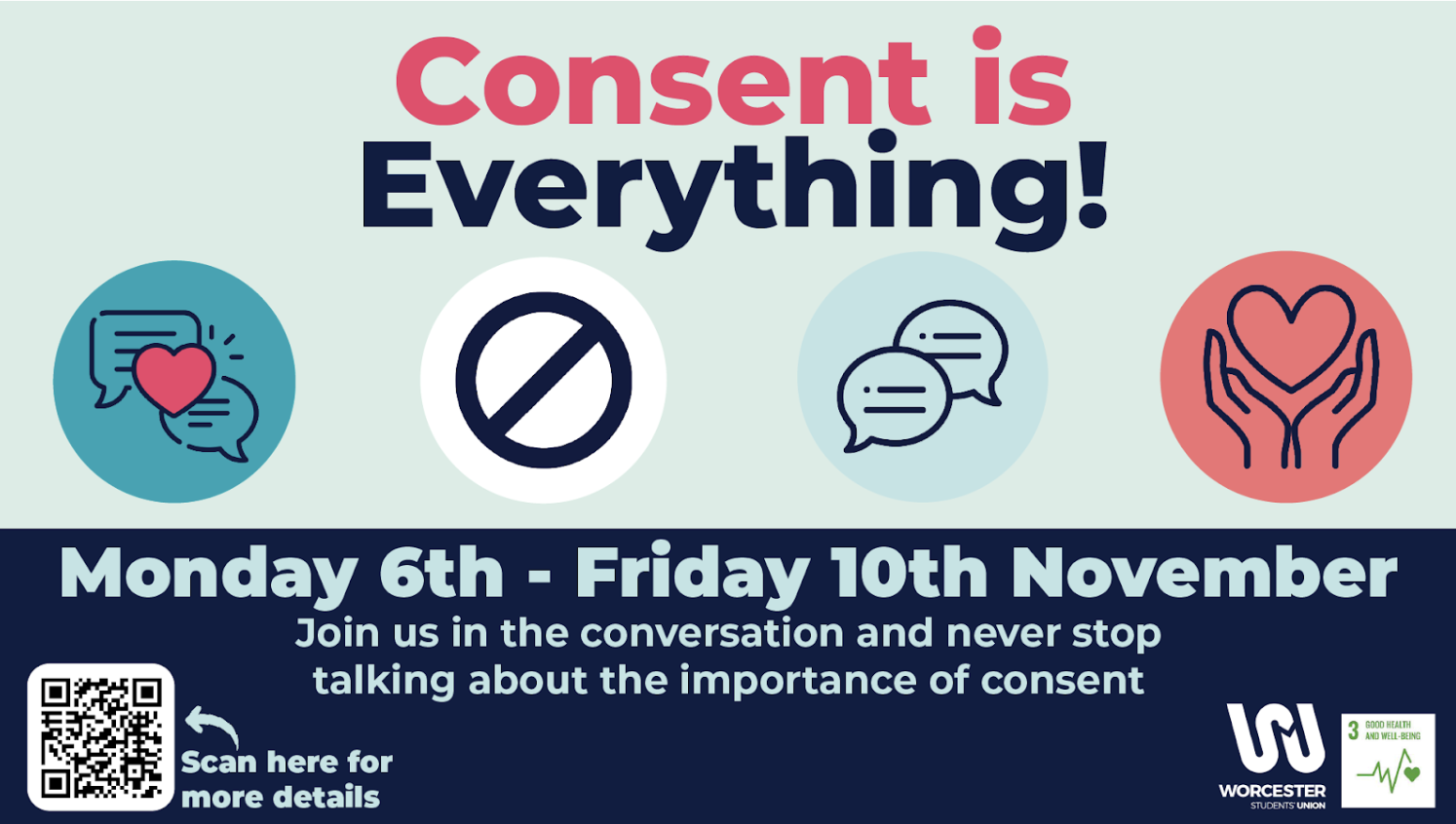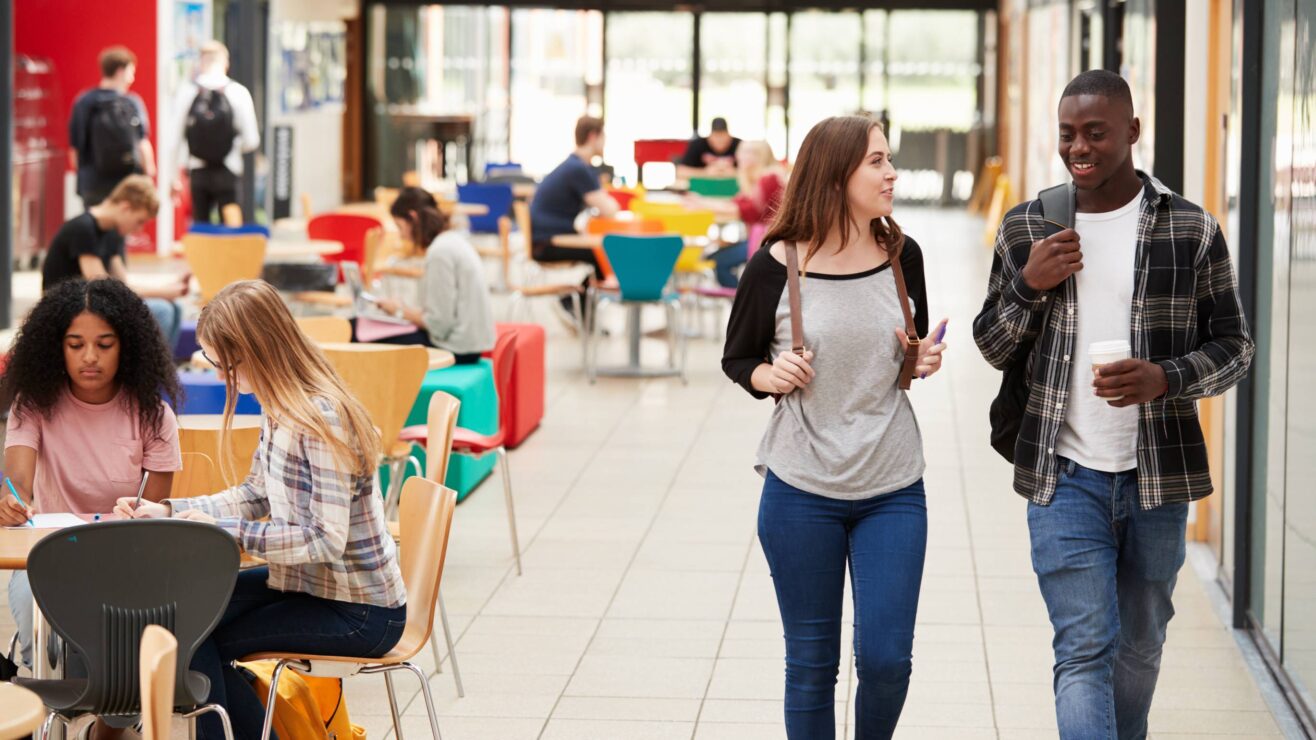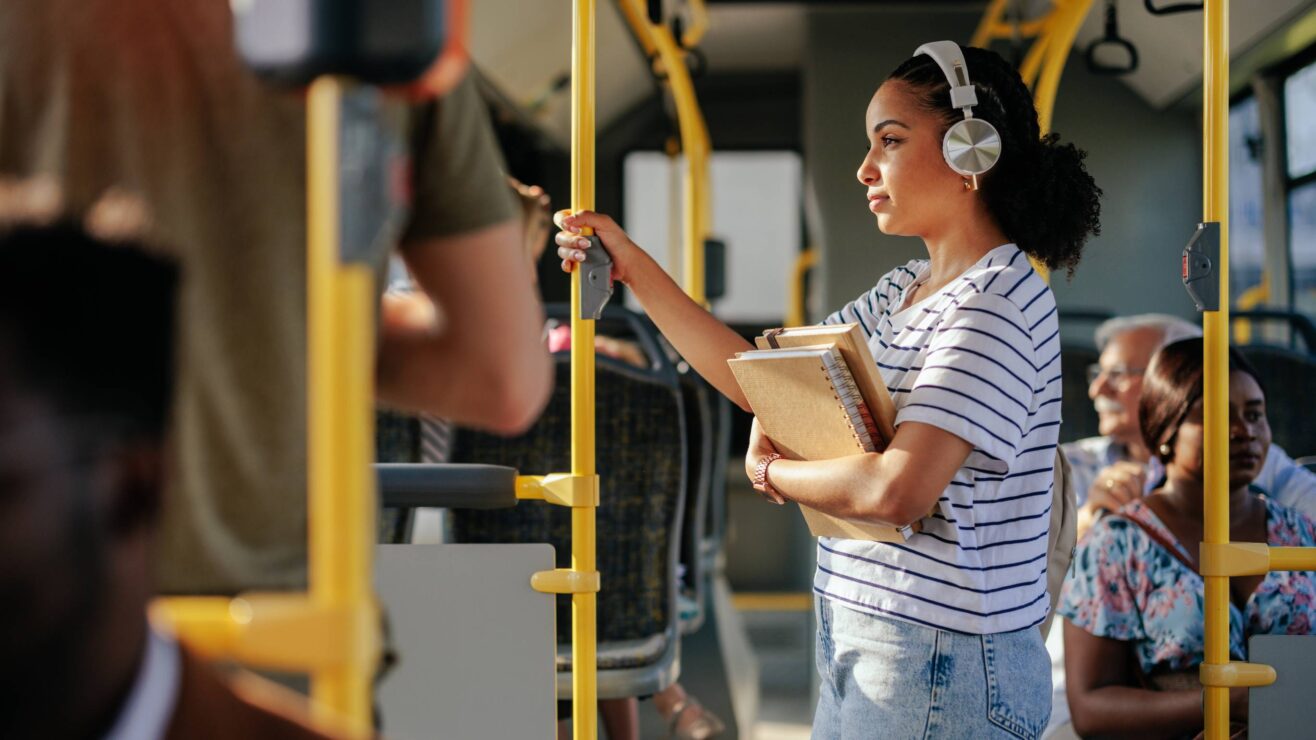Consent is respect, consent is personal, consent is important. Consent is everything.
This was the tagline I took for our “Consent Matters” campaign at Worcester SU which ran throughout the first week of November.
Part of the reason I ran to be a student officer was I wanted to make campus a safer place for students to exist in. Too often students are made to feel uncomfortable in what should be safe spaces; either the library, halls of residence, walking to and from class, or on public transport.
This is a well-trodden policy area for student leaders. Much of the work around intiating conversations about the importance of consent on campus has come from within student unions. Additionally, in England, the Office for Students (OfS) is due to begin regulating providers in the next academic year on their ability to both educate and protect students from harassment and sexual misconduct.
This week alone a small scale poll run by OfS was highlighted in the November minutes from the regulator’s student panel, the poll on harassment and sexual misconduct found that an “alarming” number of students had experienced some form of unwanted sexual behaviour during their time in higher education. It got me reflecting on the work I’ve been doing as an officer this year.
Building boundaries
Understanding consent and how to respect other people’s boundaries is a key part of this conversation, as being comfortable and able to establish what consent is and what to do if you feel this is violated is an essential element in making students feel safe on campus, and able to report if not.
The campaign had a core focus on encouraging positive consent and respect within our student community, alongside educating students and staff on all aspects of consent and the various situations in which it may arise. The week comprised various workshops, pop-ups around campus to make sure our message was as far-reaching as possible, and a social media takeover.
Once I started talking to students and staff across the institution, as well as doing my research on the topic, I began to unpick that consent as a topic is much broader than I realised. There are many times throughout our daily lives in which we must give our consent, many of which are not strictly sexual matters.
For instance, some people are more comfortable with physical touch than others, and it is worthwhile understanding this before immediately hugging a colleague or friend to congratulate them – they may not find this as pleasant as us!
Good vibes only
To this end, we hosted a session building on the Consent is Positive Project, run by one of our PhD students at Worcester. The purpose of the workshop sought to focus on the positive side of consent, as it can sometimes be perceived in a negative light and as an uncomfortable and burdensome topic. We aimed to help students of all gender identities to become more comfortable with expressive positive sexual consent as we know how comfortable students feel about this may vary between men and women for example.
One student said they “learned new terms, new statistics, learned how to overcome barriers with consent and understand the problems we’re facing with consent as a topic”.
Or, many students give consent to precarious work contracts or dodgy housing contracts because they either do not realise what they are signing, or they feel they do not have a choice because of accommodation shortages or peer pressure. From this, we ensured we included our SU advice team to offer advice on tenancy agreements and other contracts so students better understand their rights and what they consent to in a housing contract.

Using our expertise
Another part of the week was drawing on expertise within our institution to both improve the support available and raise awareness of what support is already available – particularly given that student’s lack of understanding of their rights and the complaints process was a key concern in OfS’ report on regulating harassment and sexual misconduct.
At one of the workshops, we invited Dr. Gill Harrop to discuss their research on student perspectives on consent and consent training – including an interview together with our local BBC radio station about the importance of bystander intervention programmes. Findings from a University of Worcester research study suggested that consent is defined by students in varied ways. Another study identified one example of a perception of consent as a “negotiated transaction”. Additionally, intoxication has an impact on students’ perceptions of consent and the settings in which consent can be talked about openly.
Being real
In all honesty, and I think it’s important to be frank about this stuff, some of our sessions were not as well attended as I hoped they would be. Especially considering how many students I had spoken to both while running for my role, and within my role about important issues to them, consent and protecting students from incidents of sexual harassment was a key concern. Yet engagement with the campaign was varied.
At first, I was disappointed and blamed myself. Maybe I didn’t advertise it enough? Maybe I planned it poorly, or there was something I did wrong?
It wasn’t any of that. I looked back at our online engagement and it was positive, no lower than usual, and higher in places. Frankly, getting students to do anything new and extra in their busy lives is hard, and I know I’m not the only SU officer who has felt this way. Students are busy, they have work, caring responsibilities, deadlines, and other extracurriculars to participate in and joining a consent workshop may not be at the top of their priorities that week. And that’s fine.
From our feedback, we know that the students who did attend got a lot out of it and felt more comfortable discussing consent after attending the workshops – which was the whole point.
One student said they “wish[ed] wish it [bystander and consent training] was mandatory or could go to societies training and do a presentation before their session, it’s such an important topic”.
Going for gold
This got me thinking about how I could have a more longer-term impact for those who maybe couldn’t come to the events, didn’t feel comfortable doing so, or even didn’t see the point in them.
Following conversations with our pro-vice-chancellor for students, we worked closely with the university to design a consent initiative that will be in place for the academic year 24/25 for all new students. The support package will be bespoke to students depending on their individual needs or characteristics, including clear definitions of positive consent, how to initiate conversations about consent, and being an active bystander.
Currently at Worcester, we have a brilliant bystander programme that’s been running since 2016, aiming to develop a safe, positive campus community, where there is a clear message that violence, abuse, and harassment are not tolerated, as well as what to do if you experience it or see it happening.
Future-proofing
Over my next few months in office, I hope to explore how we can foster these initiatives to be more embedded within the curriculum, as well as how better to make students want to take time out of their busy and complex lives to engage in productive conversations about consent.
Part of this means working closely with the institution and other SUs to ensure OfS’ new condition of registration on harassment and regulation requirements are met in a way that best supports our student populations. Some of this may mean rethinking how we communicate this information with students.
In the consultation questions, OfS suggested that information on reporting or how to report should be easily accessible, in one place and in a format that students can understand. Mandatory bystander training or some form of educational offering on what constitutes harassment and what to do if this occurs seems likely to remain in the soon-to-be published consultation on harassment and sexual misconduct.
Learning from mixed attendance and engagement with our voluntary sessions on being an active bystander, it is vital universities embed this work within existing structures. Anecdotal evidence tells us students need spaces where they can have these conversations. But they need to be facilitated and timetabled into schedules like lectures or seminars, potentially with a “pass or fail” element to ensure attendance.
Students are key
Additionally, it is clear from conversations with students who attended the workshops and sessions, that something they valued was that they were given a space in which they felt comfortable to raise concerns, and fears and ask difficult or embarrassing questions. Meaning, if the OfS consultation response emphasises the need for providers to be able to demonstrate that their programmes are effective – doing these training sessions in a manner that allows interactivity and the students themselves to shape some of the conversations is key to having the most impact.
Students can play a crucial role in helping universities meet the new conditions of registration, from helping write student-facing documents to hosting peer-led consent training activities and intervention programmes.
As student officers and student unions, we have always played a key role in driving the conversation around consent and harassment forward. The looming publication of OfS’ consultation on the new conditions of regulation on harassment and sexual misconduct is an important milestone in ensuring students are shaping this work to make our campuses safer places to be.

















